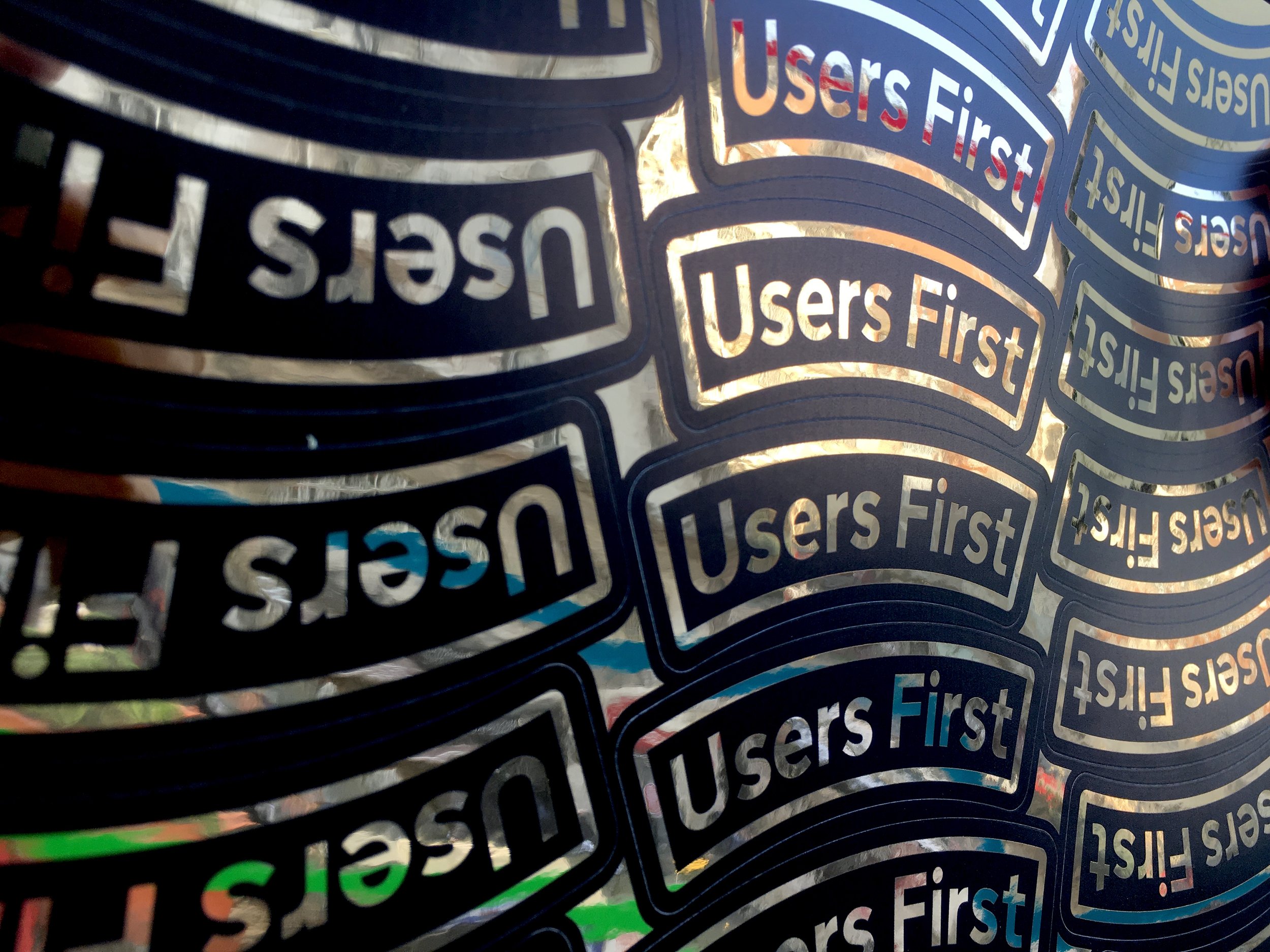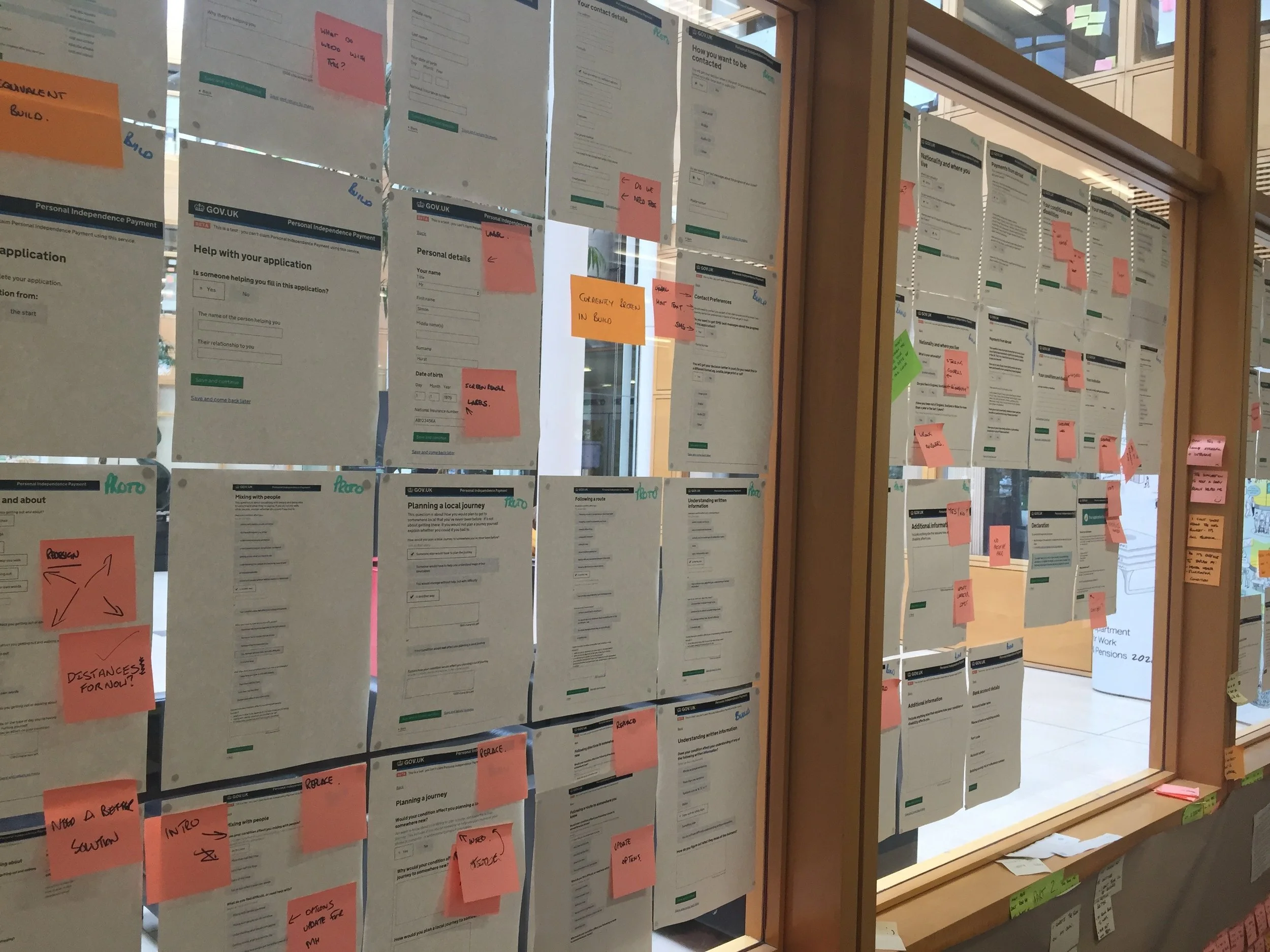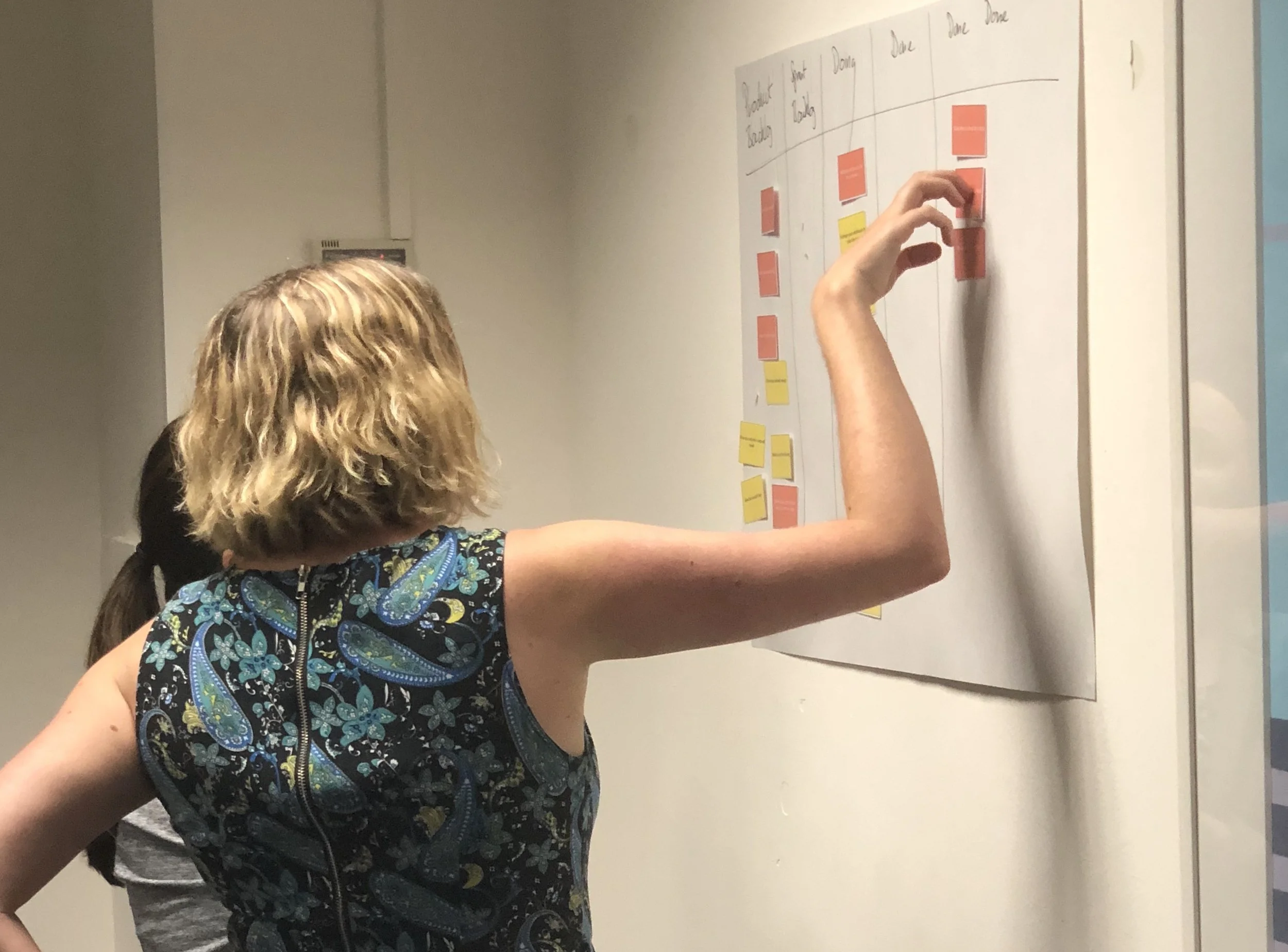
Agile for delivering government services
1 day | In-person or remote | from £200 (ex VAT)
-
The GDS Service Manual describes the approaches it advises teams to adopt to deliver digital services, and dictates the way in which government has adopted agile practices. We provide a summary of the service manual, highlighting the aspects that are specific to government.
-
The Service Standards set the standards that digital government services are expected to meet and form the basis of the Service Assessment. We explain the service standard, and more importantly the intent behind the standard. We also explain how service assessments are run and what teams should do to ensure they pass their service assessment.
-
Digital delivery teams in government are expected to work in a way that aligns with the GDS Phases of Delivery for Digital Services. We explain each of the phases and how teams should approach each phase and the specific objectives teams should aim for during each phase.
-
A big driver to delivering value to users is governments focus on user needs. The course provides an overview of User Centred Design, specifically looking at the difference between User Needs and user stories.
-
The adoption of agile in government has been varied across and within departments. The approaches used, and their implementation varies often from team to team. In this section of the course we share our experience of the most common and most succesful ways in which agile ways of working have been adopted, and those where it has not been so successful.
-
Government often takes a traditional waterfall and PRINCE2 approach to problems. These can cause specific challenges for digital delivery teams that are trying to move away from these approaches to more agile approaches. We take a look at some of the specific challenges and share our experiences of the best ways to tackle them. In particular we look at some of the intrinsic issues that exist around governance, the civil service structure, and the adverse impact caused by the implementation of some of the approaches that government has adopted. These in turn affect the ability to change the delivery culture from command and control to a more agile culture.
-
The structure of the civil service and the language used in government means that there is often a difference between terms that are used in the wider agile community as opposed to those used in government. We run through some of the most common discrepancies, especially regarding common agile roles, and governments Digital, Data and Technology (DDaT) roles.
Our agile for government course provides an understanding of what it means to be agile in a public sector setting with the constraints, regulations and challenges that come with it.
The types of services and products that Government deliver have significant impacts on people's lives or are services that people are heavily dependant on, so it's important that services are built that meet user needs and are delivered with an understanding of the challenges that those user groups face when interacting with Government.
Government services follow a lifecycle and need to meet specific standards and so it's important that the people delivering services and products in Government understand this and have the ability to build services and products that meet these criteria, and deliver products that can stand up to the level of scrutiny required in public service.
Who's it for?
Our agile for government course is suitable for anyone who is engaged in delivering digital services for the UK Government or the wider public sector in general. It's designed to meet the needs of civil servants, suppliers or contractors involved with the delivery of digital services.
Why should I attend?
This course is specifically designed for individuals and teams engaged with delivering public sector digital services.
The course can be used by those already knowledgeable, skilled and practiced with agile ways of working as a familiarisation to how government utilises agile ways of working. It can also be used to supplement any of our other agile training courses with an explanation of how government utilises agile ways of working.
The Joule Digital coaches that designed and deliver this course are the same coaches that worked for the GDS Academy designing and delivering the agile courses delivered to thousands of civil servants. So who better to learn from about delivering digital services for government than the very people that train government civil servants to deliver government digital services.
Our remote (online) course covers the same topics as our face-to-face course. We have adapted some of the activities so that we can deliver them remotely, but they are not identical.
Our online course has shorter lessons and activities. Our adapted online face-to-face activities are slightly more directed than when we run them face-to-face. We've also found that online learning tends to feel much more intensive so we build in more, but shorter breakout slots.
£255per delegate (ex VAT)
In-person course
Remote course
Private course
£200 per delegate (ex VAT)
£1050 max 12 delegates (ex VAT)
We offer a limited number of early bird tickets for our in-person and remote courses when purchased at least one month prior to scheduled course. These are discounted by 30% off the full price.
We offer our standard public Agile for delivering government services course, as a 1 day, in-person or fully remote (online) course.
Our face-to-face course is normally run in Sheffield or London, but we do sometimes run our course in other locations if it suits all of the course delegates - just let us know your preference.
Running the course face-to-face allows us to demonstrate many of the topics we cover using a variety of activities, workshops and games.








